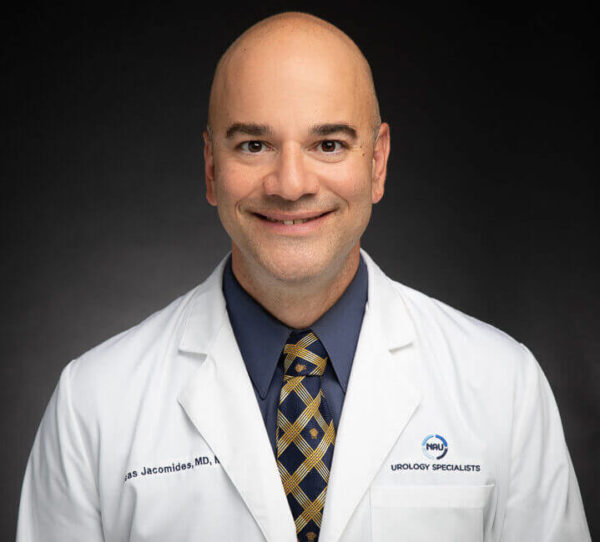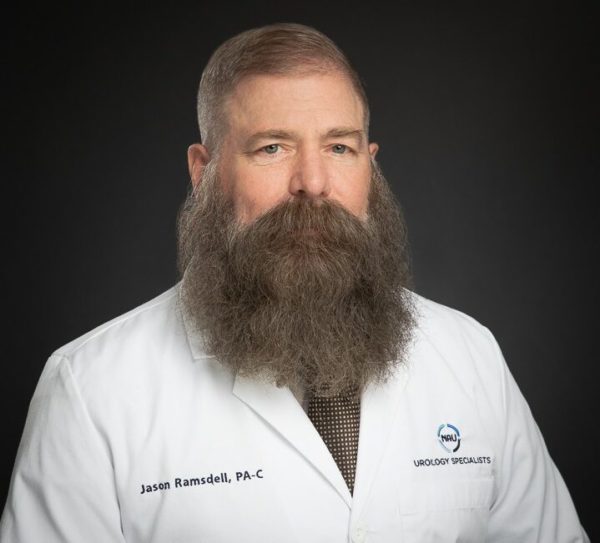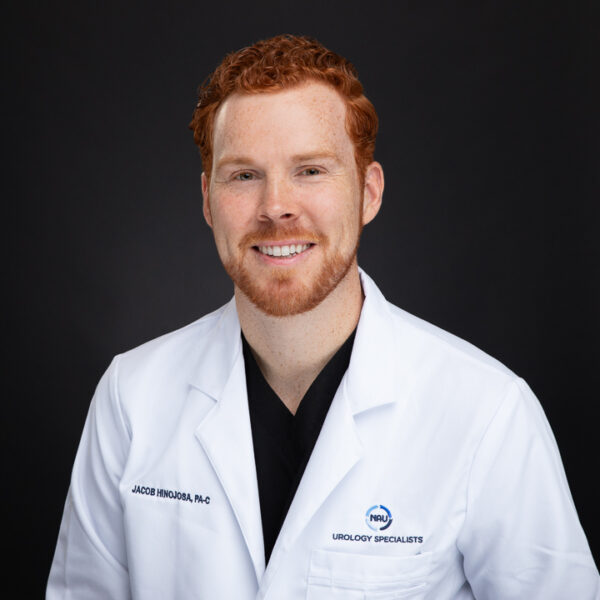
Obstructive Sleep Apnea
You may not traditionally associate sleep apnea with a urological practice, but this is actually quite common among patients in our office. In fact, about 5% of middle-aged men suffer from obstructive sleep apnea. There are a variety of factors that contribute to sleep apnea, as well as associated urological conditions. Combined together, these issues wreak havoc on patients’ quality and quantity of sleep, and while urologists are not sleep specialists, we can address the underlying causes and help solve the issue.
What Is Obstructive Sleep Apnea?
Obstructive sleep apnea, as opposed to other types of sleep apnea (central sleep apnea and complex sleep apnea) is a sleep disorder characterized by the periodic relaxation of muscles in the throat, leading to blocked airways. This phenomenon limits regular respiratory function, and people with obstructive sleep apnea typically snore throughout the night.
While snoring does not necessarily cause for immediate concern, if the issue is disrupting your sleep enough, is accompanied by any of the other symptoms or ailments listed below, or is causing ongoing disruption in your partner’s sleep, it is probably time to make an appointment with your doctor.
Associated Urological Conditions
Over 84% of sleep apnea patients also present with frequent urination issues. Waking up in the middle of the night with the urge to urinate is called nocturia. This type of urinary incontinence can be extremely disturbing to normal patterns of sleep and often lead to chronic sleep deprivation and years or decades of insufficient rest. Since bodily systems repair and restore during sleep, waking up multiple times per night to go to the bathroom can have other long-term impacts on the optimal functioning of the immune system.
“Frequent” nighttime urination typically refers to three or more trips to the bathroom during a night’s sleep. Some patients report six, seven, or even more nightly urinary urges. Some patients may suffer from enuresis, or bedwetting if they do not wake up with the urge to urinate. These symptoms can be indicative of issues in the prostate.
While the links between nocturia and obstructive sleep apnea are still being researched, specialists believe that when breathing stops, the body’s mechanisms for waking up — which includes an increase in blood pressure — may send signals to the urinary tract, including the urge to empty the bladder.
Another urological condition associated with obstructive sleep apnea in men is erectile dysfunction, which can also include a decrease in libido. Obstructive sleep apnea not only causes chronic fatigue, which can lower sex drive, but it also causes a decrease in testosterone production. The decreased production of this hormone can have a significant effect on both overall libido and erectile functioning.
Symptoms of Obstructive Sleep Apnea
Some of the most common symptoms of obstructive sleep apnea are:
- Snoring loudly and regularly
- Chronic fatigue or sleepiness during waking hours
- Frequent nighttime urination or bedwetting
- Choking or gasping for air throughout the night
- Night sweats
- Morning headaches
- Waking up with dry mouth, swollen glands, or sore throat
- Decreased sex drive
- Erectile dysfunction
Tests and Treatment Options
Obstructive sleep apnea is diagnosed through a variety of methods. Through a physical examination and questionnaire, as well as gathering your medical history, doctors can usually rule out other issues. If you are seeing a doctor for this issue, be prepared to answer questions about snoring habits, daytime fatigue, libido, and sleep disturbances in yourself or your partner, to the best of your ability.
If urinary incontinence or erectile dysfunction are suspected, other urine samples or blood samples may be taken. Other sleep apnea tests may include a sleep study, or polysomnogram, which can usually be done at home but occasionally must take place at a sleep clinic. With the use of surface electrodes around your head and an oximeter probe on your finger, doctors can record and assess brain and muscle activity. If needed, additional tests could include an EEG to record changes in brain waves during sleep.
If the underlying cause of obstructive sleep apnea is a urological issue, such as a urinary tract or prostate condition, we will work to treat that first. Often, this automatically clears up sleep apnea.
However, if problems with snoring and shortness of breath continue, the most effective treatment is often the use of a continuous positive airway pressure (CPAP) machine. This device consists of a mask with straps, connected to a hose, and is worn during the night. It keeps your airways open by continuously blowing small amounts of oxygen into the throat, preventing shortness of breath from collapsing airways. It is important to ensure that the CPAP mask is worn correctly, with tight seals over the nose or mouth. Many patients have had great success with a CPAP and have eliminated all symptoms related to sleep apnea for good.
If you are concerned you may have obstructive sleep apnea and have been showing any of the symptoms above for a prolonged period of time, contact us. One of our specialists can assess your situation and work with you on a treatment plan.













